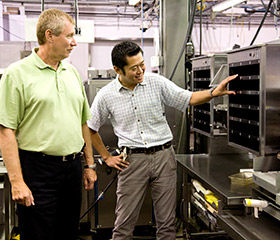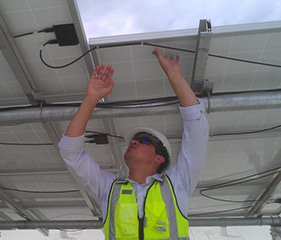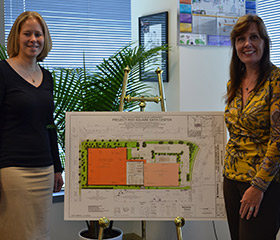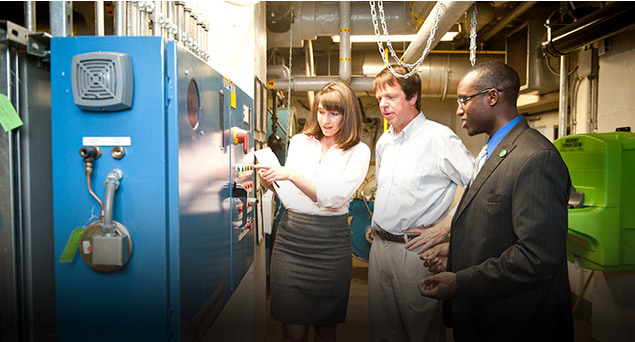For 25 years, EDF has partnered with leading companies to find pragmatic, market-based solutions to environmental issues. EDF Climate Corps takes this model to scale by embedding hundreds of fellows in companies every summer.
EDF’s highly trained Climate Corps fellows provide hands-on help to companies, driving financial and environmental results in a wide range of project types:

Energy Efficiency
Climate Corps fellows identify, analyze and quantify opportunities to save energy within systems common to most facilities. Duke University fellow Koji Kitazume found ways for McDonald’s to cut nearly 3 million kWh of electricity usage annually.

Clean and Renewable Energy
Climate Corps fellows uncover opportunities for deman response as well as renewable energy generation and procurement policies. At Caesars Entertainment, Yang Liu developed a plan for renewable energy strategy, rooftop solar deployment and battery storage for peak demand reduction. Liu's plan provides Caesars with a roadmap to achieve greenhouse gas reductions, reduce operating costs and benefit the envrionment.

Data Analysis
Climate Corps fellows will analyze and track energy and GHG emissions data, conduct GHG inventory management, facilities benchmarking and energy mapping for host companies. Rice University fellow Carlos Solano conducted a comprehensive data audit for the U.S. Army’s largest post, Fort Bragg, finding efficiencies that will drive future energy and budget savings.

Engagement and Behavior Change
Climate Corps fellows also develop programs to advance company’s energy goals by empowering employees to engage and drive energy initiatives. M.I.T. fellow Katie Franklin worked with Time Warner Cable in 2013 to recruit employee engagement as part of TWC’s carbon abatement strategy.

Financial Evaluation and Planning
Climate Corps fellows will work with host organizations to create innovative financing strategies to support energy management. Columbia University fellow Julia Moshkin created a customized financing strategy for energy projects at Sony Pictures Entertainment where over 1 million kilowatt hours per year could be saved while being fully funded through utility on-bill financing.
